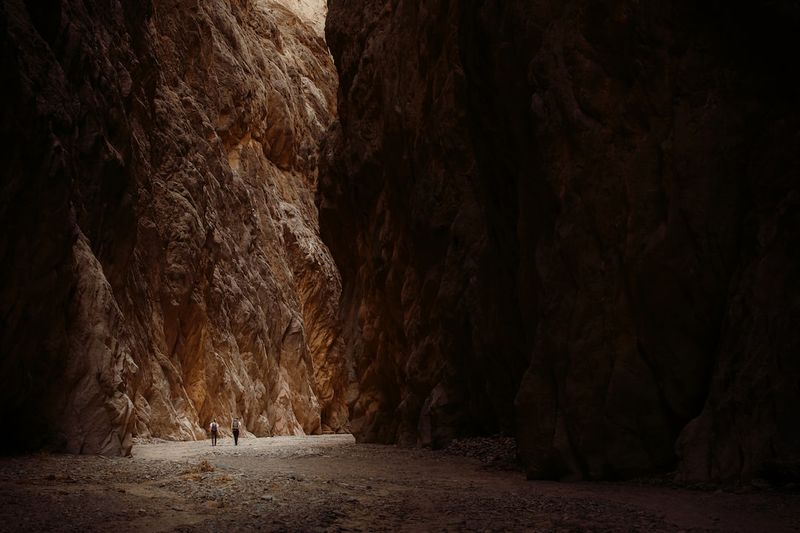Royal Caribbean Builds World’s Largest Cruise Ship: Icon of the Seas
Royal Caribbean, one of the leading cruise ship companies, has recently unveiled its latest creation – the Icon of the Seas, now officially the world’s largest cruise ship. Set to make its debut in January 2024, the Icon of the Seas promises to offer guests the experience of a lifetime, combining the best of various types of vacations within the confines of a luxurious floating city.
Unprecedented Size and Features
The Icon of the Seas is truly a marvel of engineering and design, boasting a weight of approximately 250,800 tons and measuring close to 1,200 feet long. This impressive vessel has been equipped with a plethora of record-breaking attractions, ensuring that guests will never run out of activities and entertainment options during their voyage. CNN, which provided a sneak peek into the ship, revealed that it includes the world’s largest waterpark at sea, complete with six slides, seven full-size swimming pools, an aqua park for families, and even a swim-up bar.
In addition to the waterpark, the ship offers over 40 exclusive dining experiences, arcades, live music, and shows. With 28 different types of accommodations available, the Icon of the Seas provides ample space and options for families and group travelers.
Eco-Friendly Innovation
Royal Caribbean’s commitment to sustainability is evident in the Icon of the Seas, which is the company’s first ship powered by liquefied natural gas (LNG) and fuel cell technology. By utilizing these cleaner energy sources, Royal Caribbean is taking a significant step towards reducing its environmental impact and championing a greener future for the cruise industry.
Implications and Future Trends
The unveiling of the Icon of the Seas raises several important questions and considerations. Firstly, the sheer size and extravagance of this cruise ship beg the question of whether there are limits to human indulgence and consumption. As we witness the development of increasingly larger and more luxurious vessels, it becomes crucial to reflect upon the environmental consequences and social implications of such extravagance.
Moreover, the introduction of the Icon of the Seas highlights the growing demand for all-inclusive vacation experiences that provide a variety of attractions and activities in a single location. This trend reflects a desire for convenience and efficiency, as well as the increasing popularity of cruise vacations among travelers seeking a diverse range of entertainment options.
However, it is important to strike a balance between convenience and sustainability. As the cruise industry continues to expand and innovate, it is crucial for companies like Royal Caribbean to prioritize environmental stewardship and invest in technologies that reduce their carbon footprint.
Editorial: Reimagining Luxury Travel
The launch of the Icon of the Seas presents us with an opportunity to reflect on the concept of luxury travel and its evolving definition in the modern world. Traditionally, luxury has been associated with opulence, exclusivity, and indulgence. However, as we confront the challenges of climate change and strive for a more sustainable future, the time has come to rethink our understanding of luxury.
True luxury should no longer be measured solely in terms of extravagance and lavishness. Instead, it should encompass elements of responsibility, mindfulness, and respect for the environment. As travelers, we have a responsibility to choose experiences and accommodations that prioritize sustainability and minimize our ecological impact.
Royal Caribbean has taken a step in the right direction with the introduction of the Icon of the Seas. By incorporating clean energy technologies and actively working towards reducing its environmental footprint, the company has set an example for the entire cruise industry. However, there is still much work to be done.
It is our hope that as the demand for luxury travel continues to grow, companies will embrace sustainable practices and offer travelers experiences that align with their values. Whether it be through carbon-neutral operations, eco-friendly design, or support for local communities, the future of luxury travel should be characterized by a commitment to both indulgence and sustainability.
Advice for Potential Travelers
If you are considering a cruise vacation aboard the Icon of the Seas or any other luxury cruise ship, it is essential to research and choose companies that prioritize sustainability and environmental stewardship. Look for cruises that utilize clean energy technologies, support local communities, and have a demonstrated commitment to reducing their carbon footprint.
Additionally, consider the impact of your own actions during the cruise. Be mindful of waste management practices, minimize energy consumption, and engage in responsible tourism. By making conscious choices, you can contribute to a more sustainable and environmentally friendly cruise experience.
Lastly, it is important to remember that true luxury goes beyond material indulgence. Seek meaningful experiences, connect with local cultures, and use your travels as an opportunity to broaden your perspectives and deepen your understanding of the world.
Keywords: Luxury cruising, Royal Caribbean, floating paradise, travel, vacation

<< photo by Анастасия >>
The image is for illustrative purposes only and does not depict the actual situation.
You might want to read !
- Royal Caribbean’s “Icon of the Seas” sets sail as the world’s largest cruise ship
- Are the Vegas Golden Knights Poised for a Deep Playoff Run?
- The Unsettling Persistence of Antisemitism in Germany: Examining the Rise of Right-Wing Extremism
- “Battle Against Forest Fires: Months of Efforts for Complete Extinguishment”
- Assessing Don Sweeney’s Drafting Success: A Ranking of the Boston Bruins’ Entry Drafts
- Nicole Scherzinger’s Engagement to Thom Evans: Exploring Their Relationship and Future Plans
- Canada’s Unprecedented Wildfires: François Legault Expresses Concern
- Enter for a Chance to Sail Away with Bateau Mouche and Virgin Radio: Win a Dream Cruise!




